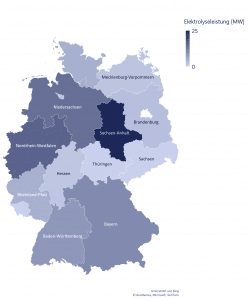The progression of PtX technologies within the last two decades, starting in Germany, seems to have developed into a success story, with currently more than 900 projects worldwide. At this time, a transition from small laboratory-scale pilot projects to large-scale commercial use can be observed. The PtX activities up to now have been followed and analyzed by LBST, who will continue to in the future.With the coupling of electricity, gas and transport as part of the clean energy transition, a new technical infrastructure is emerging in which the power-to-X concept (PtX), as a sector-coupling technology, can make a major contribution to the decarbonization of industry. Under the term PtX are systems that use electrical energy to generate hydrogen and, as needed, convert that hydrogen, with addition of carbon, into gaseous or liquid hydrocarbons.
Since 2011, the engineering firm Ludwig-Bölkow-Systemtechnik (LBST) has been following the development of relevant PtX activities and maintaining a database, which currently contains 900 projects from around the world. While initially only smaller systems with electrolysis capacities in the kilowatt range for research purposes were listed, more recently projects with electrical outputs of several megawatts have been realized. Even larger plants in the gigawatt range are currently in various stages of preparation for various countries. Drivers of this are the rising pressure to reduce greenhouse gas emissions, the extensive public as well as private funding, and not least the Ukraine conflict, which has accelerated the need to diversify the energy supply.
Site of Germany
From April 2022, in Germany alone are located around 200 research and demonstration units in various stages of implementation, from “announcement” to “planning,” to “construction and operation.” The total installed output capacity of PtX stations in the Federal Republic currently amounts to nearly 55 MW. For comparison, in May 2012, the total capacity lay under 50 kW. This corresponds to a thousandfold increase within ten years.[…]
… Read this article to the end in the latest H2-International
Authors: Tetyana Raksha & Luis A. Martinez B. – Both at Ludwig-Bölkow-Systemtechnik GmbH (LBST), Ottobrunn/München, Germany


























0 Comments